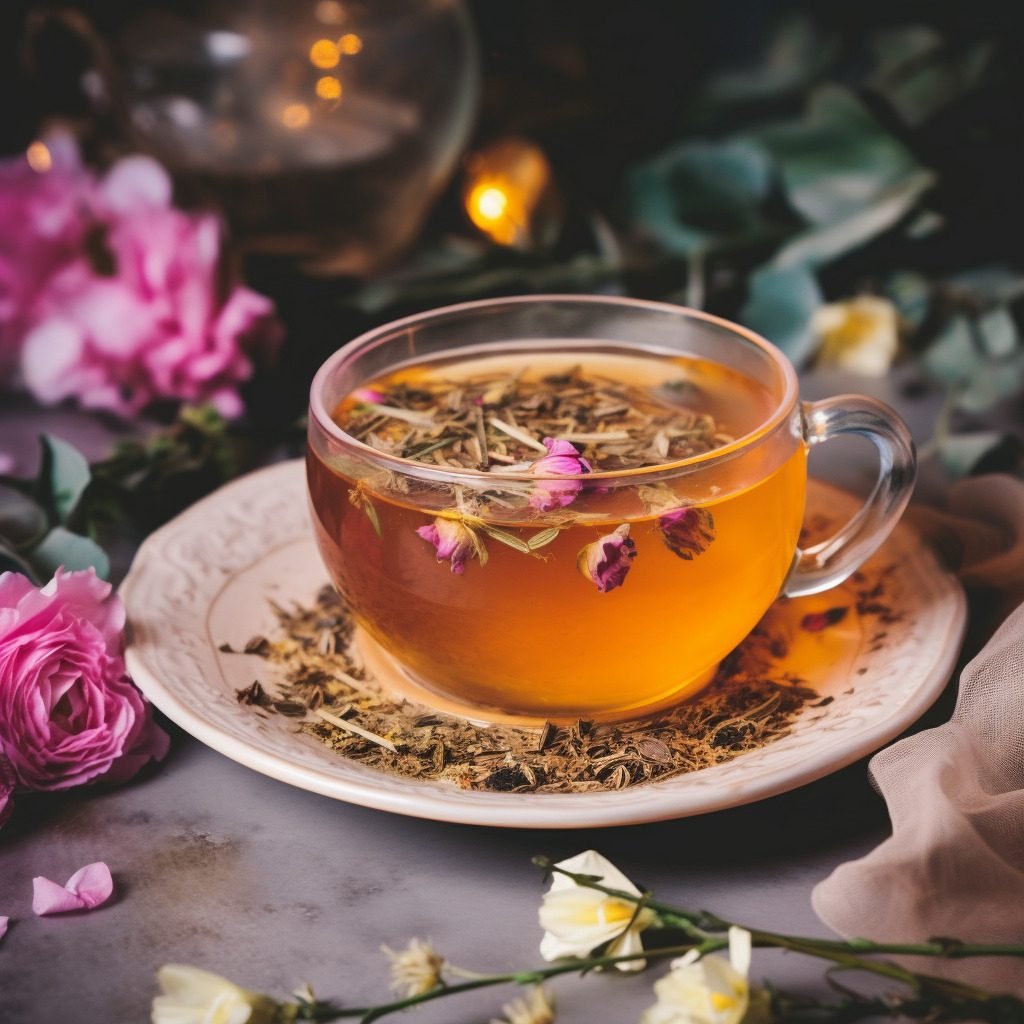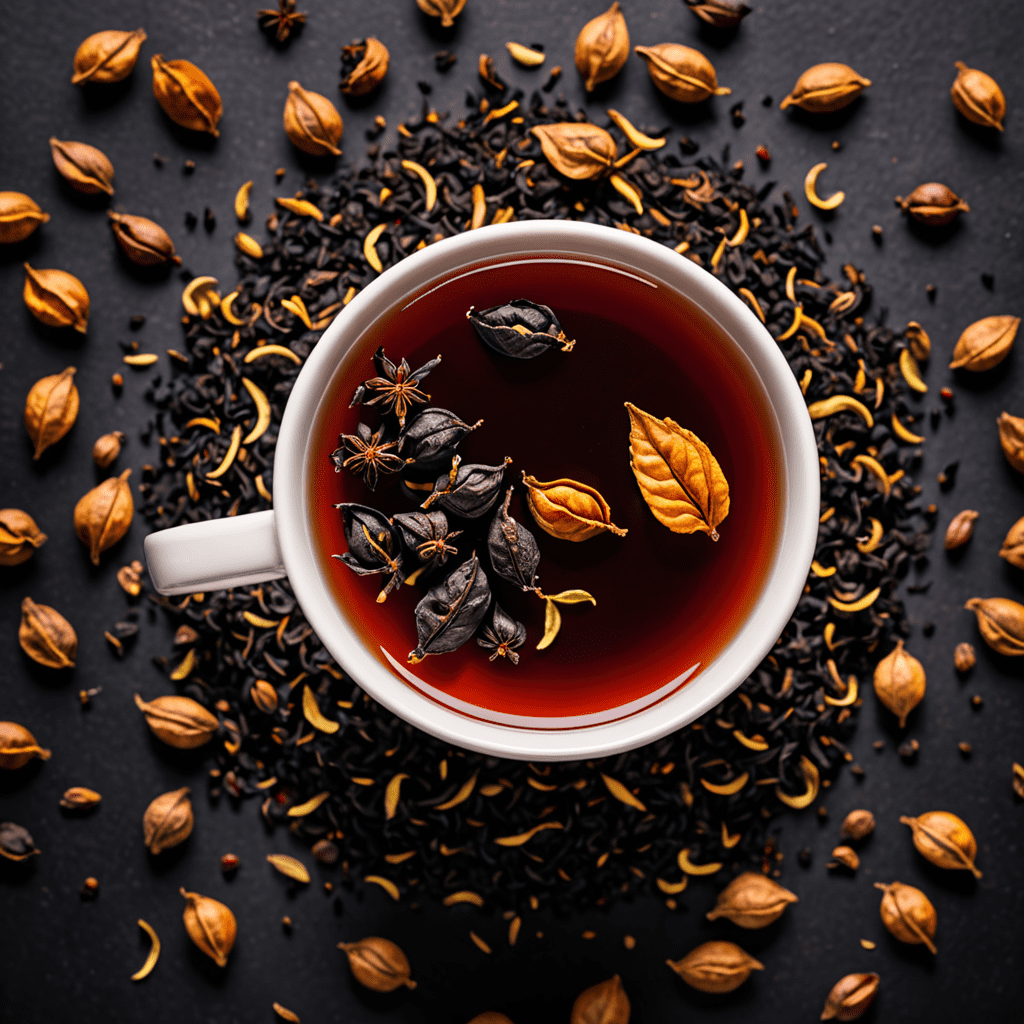The Best Herbal Teas for Getting a Good Night’s Sleep
Getting a good night’s sleep is essential for maintaining overall health and well-being. However, many people struggle with falling asleep or staying asleep throughout the night. If you’re looking for a natural way to promote relaxation and improve sleep quality, herbal teas can be a great option. In this article, we will explore the key elements of herbal tea for sleep and provide tips on how to incorporate it into your bedtime routine.
Key Elements of Herbal Tea for Sleep
- Chamomile: Chamomile tea is one of the most popular herbal teas known for its calming properties. It contains compounds like apigenin, which binds to certain receptors in the brain and helps to induce sleepiness. Chamomile tea is also known for its mild sedative effects, making it an excellent choice for those struggling with insomnia.
Lavender: Lavender is widely recognized for its soothing and relaxing scent, but it can also be consumed as a tea. Lavender tea has been shown to reduce anxiety and promote better sleep. The aroma of lavender itself has a sedative effect, making it a perfect choice for winding down before bedtime.
Valerian Root: Valerian root has long been used as a natural remedy for insomnia. This herb contains compounds that increase the levels of gamma-aminobutyric acid (GABA) in the brain, which helps to calm the nervous system and promote sleep. Valerian root tea is known for its strong, earthy flavor and is best consumed about an hour before bedtime.
Passionflower: Passionflower tea is another excellent choice for improving sleep quality. It contains compounds that increase the levels of GABA in the brain, similar to valerian root. Drinking passionflower tea before bed can help relax the mind and body, making it easier to fall asleep and stay asleep throughout the night.
Lemon Balm: Lemon balm tea is known for its mild sedative properties, making it an ideal choice for promoting relaxation and sleep. This herb can also help to reduce anxiety and improve mood, making it a popular choice for those struggling with sleep disorders.
Peppermint: Although peppermint tea is often associated with its refreshing and invigorating effects, it can also be beneficial for sleep. Peppermint tea helps to relax the muscles and soothe the digestive system, which can contribute to a more restful night’s sleep.
Hops: While often associated with beer-making, hops can also be brewed into a tea that promotes relaxation and sleep. Hops contain compounds that have sedative effects on the central nervous system, making it an effective herb for treating insomnia.
Tips for Herbal Tea for Sleep
Experiment with different flavors: Find a herbal tea flavor that you enjoy and look forward to drinking before bed. Whether it’s the earthiness of valerian root or the soothing aroma of lavender, find a taste that suits your preferences and promotes relaxation.
Choose organic teas: When selecting herbal teas for sleep, opt for organic varieties to avoid any potential pesticides or harmful chemicals that could disrupt sleep quality.
Consider blends: Many herbal teas for sleep come in blends that combine different herbs known for their sleep-inducing properties. These blends can offer a well-rounded approach to promoting relaxation and better sleep.
Watch your caffeine intake: While herbal teas are generally caffeine-free, it’s essential to be mindful of any added ingredients or blends that may contain trace amounts of caffeine. Avoid caffeine altogether in the evening to prevent any potential sleep disturbances.
Create a bedtime routine: Incorporate herbal tea for sleep into a relaxing bedtime routine to signal your body that it’s time to wind down and prepare for sleep. Pair it with other relaxing activities such as reading a book or taking a warm bath.
Incorporating Herbal Tea for Sleep
Keep a variety of herbal teas on hand: Experiment with different herbal teas to find what works best for you. Keep a variety of options in your pantry, so you can switch it up and prevent boredom.
Brew it correctly: Follow the instructions on the packaging to ensure you are brewing your herbal tea correctly. Different herbs require different steeping times and water temperatures for optimal flavor and effectiveness.
Consider herbal tea supplements: If you find it challenging to consume enough herbal tea for sleep throughout the day, consider herbal tea supplements in the form of capsules or tinctures. These can provide concentrated doses of the sleep-inducing herbs.
Consult a healthcare professional: If you have any underlying health conditions or are taking medications, it’s crucial to consult with a healthcare professional before incorporating herbal teas for sleep into your routine. They can provide personalized advice based on your individual needs.
FAQ about Herbal Tea for Sleep
Q: Can herbal tea for sleep be consumed every night?
A: Yes, herbal tea for sleep can be consumed every night if desired. However, it’s essential to listen to your body and adjust your intake based on how it affects your sleep quality. If you notice any adverse effects, it’s best to reduce or discontinue use.
Q: Are there any side effects of herbal tea for sleep?
A: While herbal teas for sleep are generally safe for consumption, some individuals may experience side effects such as drowsiness, dizziness, or an upset stomach. If you experience any adverse reactions, it’s best to discontinue use or consult a healthcare professional.
Q: Can I add sweeteners to herbal tea for sleep?
A: It’s best to avoid adding sweeteners to herbal tea for sleep, as they can counteract the relaxing effects and potentially disrupt sleep quality. If you need to enhance the flavor, consider using natural sweeteners like honey or stevia in moderation.
Q: How long does it take for herbal tea for sleep to take effect?
A: The effects of herbal tea for sleep can vary from person to person. Some individuals may feel the effects within 30 minutes, while others may require an hour or more. It’s best to consume the tea about an hour before bedtime to allow enough time for the herbs to take effect.
In conclusion, incorporating herbal tea for sleep into your bedtime routine can be a natural and effective way to promote relaxation and improve sleep quality. Experiment with different flavors and blends to find what works best for you, and remember to consult a healthcare professional if you have any underlying health conditions. So, why not brew yourself a cup of chamomile or lavender tea tonight and experience the soothing benefits firsthand? Happy sipping and sweet dreams!



